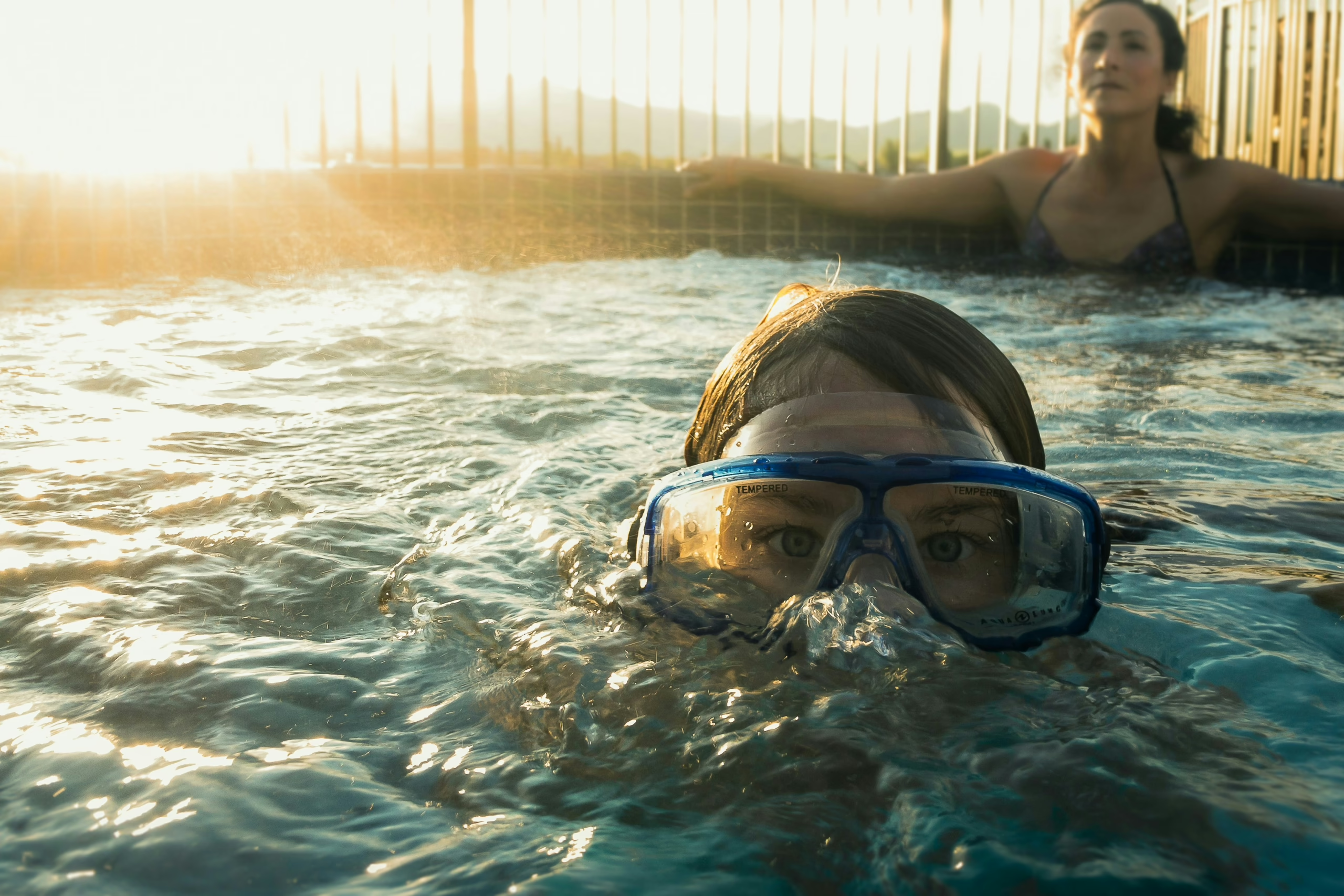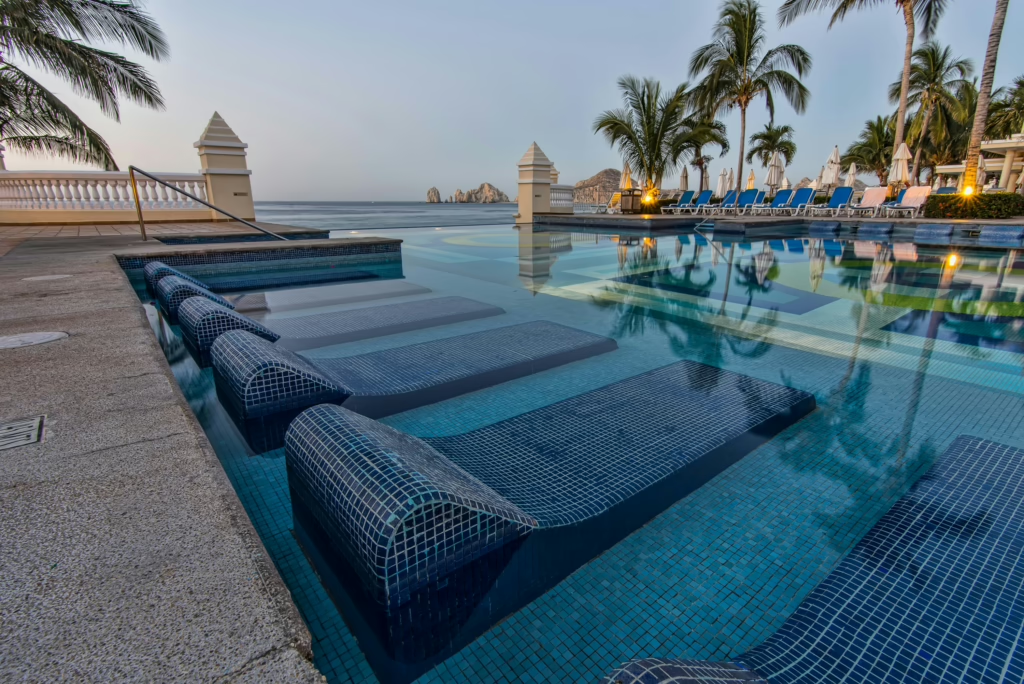Choosing the right pool heater is essential to enjoying a comfortable swimming experience year-round. A heater tailored to your climate ensures optimal performance, energy efficiency, and cost savings.
With various options on the market, such as gas, electric, heat pumps, and solar heaters, it’s crucial to understand which one best suits your needs. If you’re searching for “pool heater installation near me,” this guide will help you make an informed decision based on your local climate.
Pool Heater Types by Climate
The right pool heater depends heavily on the climate where you live. Choosing a heater that aligns with your region’s weather patterns ensures optimal performance, cost efficiency, and year-round comfort. Here’s a breakdown of the most suitable options for different areas:
Cold Climates: Gas Heaters and Heat Pumps
In colder regions, maintaining a warm pool can be challenging, especially during the shoulder seasons of spring and fall, when temperatures fluctuate.
Gas heaters are an excellent choice for these climates because they provide rapid and reliable heating, regardless of outside temperatures. They’re ideal for pool owners who use their pool sporadically or want the flexibility to heat their pool quickly on demand—perfect for weekend or unexpected gatherings.
Though traditionally less efficient in colder weather, heat pumps have seen significant advancements in recent years. Modern heat pumps with advanced defrosting technology can operate effectively even in cooler conditions, making them a great long-term solution.
While they may take longer to heat the pool compared to gas heaters, their lower operating costs make them an attractive option for pool owners who want consistent heating throughout the season.
Moderate Climates: Heat Pumps and Solar Heaters
Heat pumps are the most energy-efficient and cost-effective choice for regions with moderate climates. They work by extracting heat from the ambient air and transferring it to the pool water, making them perfect for areas where temperatures rarely drop too low.
Heat pumps are highly efficient in these environments and can maintain a comfortable pool temperature with minimal energy consumption.
Solar heaters are another excellent option for moderate climates. These systems harness energy from the sun to warm your pool, offering an eco-friendly and virtually cost-free operation after installation. However, their performance heavily depends on sunlight availability and the positioning of your solar panels.
Pool owners in areas with frequent sunny days can greatly benefit from solar heaters. They can enjoy warm water without the recurring energy costs associated with other heater types. To maximize efficiency, ensure that your solar panels are installed in a location with ample sun exposure.
Hot Climates: Solar Heaters and Energy-Efficient Options
In hot climates, pool heating needs are minimal, as the ambient temperature naturally keeps the water warm. Solar heaters are an ideal solution in these regions, providing an environmentally friendly way to maintain a comfortable water temperature without significant energy costs.
Solar heating systems are particularly beneficial for those looking to extend their swimming season during cooler evenings or shoulder seasons.
For those who prefer an alternative or wish for greater control over water temperature, energy-efficient heat pumps or electric heaters with advanced thermostatic controls are excellent options.
These systems allow for precise temperature regulation without overconsuming energy, ensuring the pool remains comfortable year-round without excessive operating costs.
Additionally, incorporating a pool cover in hot climates can help retain heat overnight and reduce energy consumption.
Hybrid Solutions for Variable Climates
A hybrid system combining different heating technologies can be a smart investment in regions where the climate varies significantly between seasons. For instance, pairing a solar heater with a gas heater or heat pump allows pool owners to utilize solar energy during warmer months and switch to a more robust heating system during colder periods.
This approach maximizes efficiency while minimizing costs, providing flexibility and consistent yearly performance.
By selecting a pool heater suited to your climate, you can ensure optimal performance and energy efficiency while enjoying a comfortable swimming experience regardless of the season.
Factors to Consider
When selecting a pool heater, it’s essential to consider more than just the climate. A thorough evaluation of your pool’s requirements and usage habits will help you choose the most suitable and cost-effective heater. Here are the key factors to keep in mind:
Energy Efficiency and Operating Costs
Energy efficiency plays a significant role in the overall cost of operating a pool heater. While known for their rapid heating capabilities, gas heaters tend to consume more energy, leading to higher operating costs over time. This makes them suitable for pools that require occasional or short-term heating.
Conversely, heat pumps and solar heaters are much more energy-efficient, with significantly lower long-term operating expenses.
When comparing models, look for Energy Star certifications, which indicate that the heater meets strict energy efficiency standards. Additionally, consider the heater’s Coefficient of Performance (COP) rating—the higher the COP, the more efficient the heater.
Pool Size and Usage Frequency
The size of your pool directly impacts the type and power of the heater you need. Larger pools require heaters with greater heating capacity to maintain a consistent and comfortable water temperature.
The heater’s rating of the British Thermal Unit (BTU) will help determine whether it fits your pool size. For instance, a small pool may only need a 100,000 BTU heater, whereas a large pool may require a 400,000 BTU model.
Another critical factor is the frequency of pool use. If you swim daily, an energy-efficient option like a heat pump or solar heater is ideal to reduce ongoing costs. For occasional swimmers or seasonal use, a gas heater’s quick heating ability might be more convenient, even if it’s less efficient in the long term.
Initial Costs vs. Long-Term Savings
While gas heaters typically have lower upfront costs, their higher operating expenses can accumulate quickly, especially with frequent use. On the other hand, heat pumps and solar heaters come with higher initial installation costs but offer substantial savings over time due to their lower energy consumption and minimal maintenance requirements.
Additionally, local energy rebates and tax incentives for installing energy-efficient or solar-powered systems can further offset the higher initial costs of these heaters. Explore any available incentives in your area to maximize your long-term savings.
Compatibility with Existing Systems
Before purchasing a pool heater, ensure it’s compatible with your setup. Solar heaters, for example, may require specific plumbing configurations or additional space for solar panels.
Similarly, some heat pumps might need electrical system upgrades to handle their power requirements. Consulting with a professional can help determine whether your system needs modifications to accommodate the new heater.
Environmental Impact
The heater’s carbon footprint is essential for environmentally conscious pool owners. Solar heaters are the most eco-friendly option since they rely entirely on renewable energy. Heat pumps also have a relatively low environmental impact due to their energy efficiency.
While effective, gas heaters produce higher greenhouse gas emissions, making them less sustainable. Choosing an eco-friendly option can reduce your environmental impact while potentially saving on energy costs.
Durability and Warranty
Investing in a durable pool heater ensures long-term reliability and fewer replacement costs. High-quality heaters from reputable brands often come with robust warranties that cover parts and labor for several years. When comparing models, review the warranty details to ensure you’re protected against potential defects or malfunctions.
Installation and Maintenance Requirements
Some pool heaters are easier and quicker to install than others. Gas heaters typically require professional installation to ensure safe and proper operation, while solar heaters may involve additional work to set up panels and plumbing. Heat pumps also require precise installation to achieve optimal efficiency.
Additionally, consider each type’s ongoing maintenance needs. Gas heaters may require regular inspection of burners and heat exchangers, while heat pumps and solar heaters often need less frequent maintenance.
By carefully evaluating these factors, you can select a pool heater that meets your needs, fits your budget, and provides long-lasting performance. Consulting with a professional can further ensure you make the best choice for your pool and climate.
Final Thoughts
Selecting the right pool heater ensures year-round enjoyment and significant energy savings. By considering your climate, energy efficiency, pool size, and usage habits.
Ready to upgrade your pool heating system? Contact Cabana Pools for expert advice and professional pool heater installation near you. Our team will help you choose the perfect solution to keep your pool warm and inviting all year!



